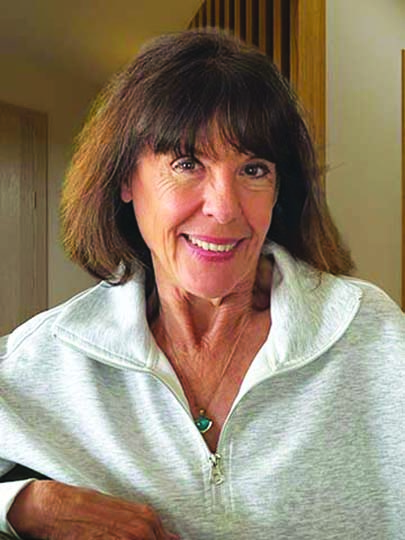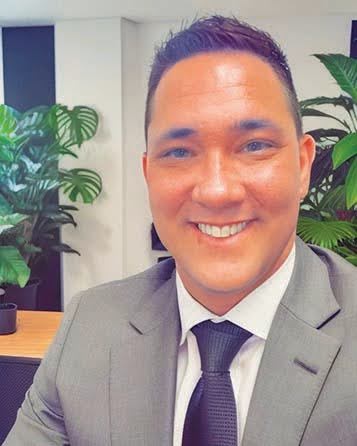It is a pervasive disorder that not only involves those who suffer from the condition, but impacts families and communities as well. Historically, depression has been overlooked, under-diagnosed and, sadly, under-treated. Current research suggests that depression is caused by a complex combination of factors. Biology is most certainly involved; the National Institute of Mental Health (NIMH) reports that a person with depressive disorder often exhibits a brain that is structurally different than someone without depression. Magnetic resonance imaging (MRI) studies reveal that the areas of the brain that are responsible for mood, cognition, metabolic function and sleeping have a unique appearance in people who have serious mood disorders.
Neurologists and pharmacologists have long pursued the connection between brain chemistry and depression in an effort to offer solutions to this disabling condition. Depression has been linked to imbalances in neurotransmitters (brain chemicals), which regulate emotion, mood, energy level and appetite, and involve serotonin, norepinephrine and dopamine. Genetics are also thought to play a role. Genetic research has revealed that people who have a close relative, like a parent or sibling, with depression are 20-30 percent more likely to experience depression. Environmental factors contribute to depression as well; a history of abuse, trauma or neglect in childhood can increase the chances of developing depression in adolescence or adulthood.
What Leads to Depression?
Many of the factors that can lead to depression are also associated with substance use disorder. Imbalances in brain chemistry, family history and past trauma, for instance, are frequently involved in both depression and addiction. Substance abuse is all too common among people who are battling depression
Many depressed individuals, if not properly treated, reach for drugs and/or alcohol as a way to lift their mood. These chemicals become a form of self-medication for soothing the feelings of low self-worth, hopelessness and despair that characterize MDD. As a result, depression and substance abuse feed into each other, and one condition will often make the other worse. As depressive episodes become more severe, the frequency and intensity of negative thoughts and self-destructive behavior may increase. The Journal of Clinical Psychiatry estimates that a third of adults who struggle with alcohol or drug abuse also have clinical depression. Depression is often an entry into substance use, and without qualified treatment, substance use can transition into full-blown addiction.
Those who experience severe symptoms of depression use alcohol and drugs to escape their negative emotions; however, substance use only worsens MDD. There are some individuals whose depression symptoms will worsen even in recovery. In cases where drugs or alcohol have been used for years to suppress symptoms, the individual may realize that depression looms ever larger as they enter sobriety. Adequate treatment in a setting that is qualified to treat individuals with a dual diagnosis is critical. Without treating the depression that drives addiction, or vice versa, the individual is likely to return to substance use or experience a return of depressive symptoms. Sadly, conventional treatment centers that do not provide adequate therapeutic support for both mood and addiction may see limited success among participants. Research shows that persons with addiction and depression have poorer treatment adherence, higher relapse rates with either disorder, higher re-hospitalization rates, and are at a higher risk for suicidal and homicidal behaviors.
TMS Therapy in Residential Treatment
Sierra Tucson, a residential treatment facility in Tucson, Arizona, has long been renowned for its integrative approach to mental health, including co-occurring disorders. Treatment for depression is provided through its Mood & Anxiety Program, the foundation of which is medication management and individual and group therapy, combined with innovative modalities such as biofeedback, mindfulness meditation and EMDR (eye movement desensitization and reprocessing). In this tradition of innovation and clinical excellence, Sierra Tucson has added NeuroStar TMS Therapy® to the Mood & Anxiety Program’s comprehensive list of services. TMS, or transcranial magnetic stimulation, provides a different approach to treatment for depression. This safe, well-tolerated, non-invasive and non-pharmacological treatment is offered in physicians’ offices across the country.
While TMS is innovative, it isn’t novel. It was cleared by the Food and Drug Administration (FDA) in 2008 for the treatment of MDD, and more than 25,000 patients have benefitted.
TMS uses magnet technology similar to that of an MRI, but the therapy is precisely targeted toward the brain. For each treatment, a magnetic coil is placed gently against the scalp, whereby a pulsed magnetic field is generated, thus stimulating nerve cells in the brain that are involved with mood regulation. The procedure can normalize and restore balance in areas of abnormal or decreased activity, resulting in a significant reduction of symptoms or complete remission from depression—all without the systemic side effects caused by antidepressant medication. Each session takes less than an hour; treatment is administered five days a week for approximately 4-6 weeks, with no sedation or anesthesia needed.
What sets transcranial magnetic stimulation at Sierra Tucson apart from outpatient TMS Therapy is the therapeutic environment. Patients are engaged daily in process groups, therapeutic recreational activities, and integrative services, in addition to having the benefit of 24-hour staff care. Typically, an individual who undergoes TMS treatment for depression will have to drive to his or her psychiatrist’s office, five days per week, for 4-6 weeks. In some instances, it may be difficult for someone with Major Depressive Disorder to take that kind of time out of his or her daily life and negotiate 20 to 30 psychiatry appointments around work, school or family obligations. For individuals who have already taken the time out of their lives for residential treatment, TMS sessions can be completed during their stay. Sierra Tucson is pioneering the concept of transcranial magnetic stimulation in the residential treatment setting. Because TMS involves a time commitment, Sierra Tucson simply streamlines the process by utilizing a person’s commitment to participate in residential treatment.
TMS treatment begins with a comprehensive psychiatric evaluation by one of Sierra Tucson’s board certified psychiatrists. TMS is a medical procedure that requires a prescription. One of the functions of Sierra Tucson’s TMS coordinators is to meet with each patient prior to treatment for a consultation, where the procedure is explained in detail and any questions can be answered.
Additionally, the patient provides signed consent for treatment. Some of the most common questions include “What are the side effects?” and “Does the treatment hurt?” The potential side effects are minimal and localized, with scalp discomfort or headache being the most prevalent. Additionally, the pain or discomfort is generally transient, lasting only for about the first week of treatment. Patients are generally surprised to hear this, and most of them, at this point, are able to chronicle their medication history, reviewing antidepressants that caused adverse effects or had no effect at all.
Some will further explain how they found themselves taking multiple medications to treat their depression, with little symptom relief and a host of new problems related to this complex medication regimen. Others may have even considered ECT, or electroconvulsive therapy. ECT is a treatment for depression in which electric current is passed through the brain, inducing a seizure. While ECT can be an effective treatment for depression, it is much more extreme. Performed in a hospital under general anesthesia, electroconvulsive therapy has the potential for causing memory loss, which can impact the individual’s daily functioning.
The TMS consultation is only the beginning of a therapeutic relationship between each patient and the provider. Following the consultation, the initial session is scheduled. Treatment sessions are one-on-one, five days a week, which gives patients time to develop a rapport with their TMS coordinator; throughout the process, they share their journey and celebrate triumphs together. A significant percentage of Sierra Tucson patients have reported major improvement, and many have experienced remission from depression symptoms altogether.
From a Clinician’s Perspective
For patients receiving transcranial magnetic stimulation for depression, safety is a priority. TMS is performed under the supervision of Sierra Tucson psychiatrists, and as the primary clinical operator, I am a registered nurse who is TMS-certified. Treatment takes place in a calming and comfortable suite. I assist each patient with continuing care during treatment by providing the individual with locations of NeuroStar TMS providers in his or her area to contact once they leave. Since many individuals stay at Sierra Tucson for approximately four weeks, we may begin TMS treatment in the residential setting and assist with transition to a local outpatient practitioner to complete the last few treatments. When we started offering TMS several months ago, I treated a patient who was from North Dakota, and I located the nearest TMS provider to his hometown. Because it was 300 miles away, he wanted to undergo as many sessions as possible during his time at Sierra Tucson. (I even came to Sierra Tucson on Saturdays to administer treatments in order to achieve this goal.) Upon discharge he said, “I never imagined this would work, but I feel like there isn’t even a trace of depression left.” There is nothing more rewarding than to bear witness to this sort of transformation, and it is the reason I am grateful for the chance to participate in someone’s recovery.
“Depression can severely affect social activities and relationships with others. Symptoms associated with depression have a huge impact on quality of life.”
TMS Therapy Quick Facts:
NeuroStar TMS Therapy is an FDA-cleared, non-drug depression treatment for patients with depression who are not satisfied with the results of standard antidepressant medication
Over 650 NeuroStar® physicians provide therapy across the country
Noninvasive and requires no anesthesia or sedation
Patients may return to normal activities immediately after treatment
Daily treatments performed 5 days a week for 4 to 6 weeks
TMS is included in the 2010 American Psychiatric Association (APA) Practice Guideline for the Treatment of Patients with Major Depression
Many insurance companies have established medical coverage policies for NeuroStar TMS Therapy
For many patients, depression symptoms significantly improved or went away after 4 to 6 weeks of treatment with NeuroStar TMS Therapy: 1 in 2 patients experienced significant improvement – 1 in 3 patients were symptom free
Everyone has Bad Days
Whether it’s due to problems at home, at work or in relationships, everyone experiences down periods in his or her life. For most people, however, these phases come and go in a reasonable, ordinary fashion and can be remedied by things that make them happy.
Major Depressive Disorder is different. For those who have been diagnosed with MDD, symptoms are usually debilitating enough to cause noticeable problems in day-to-day activities, such as work and school. Depression can severely affect social activities and relationships with others. Symptoms associated with depression have a huge impact on quality of life, and may appear as changes in mood, including feelings of sadness, emptiness or hopelessness. Anger, irritability or frustration may be present. Depression may be accompanied by anxiety or feelings of worthlessness or guilt.
Additionally, there is often loss of interest or pleasure in most or all normal, everyday activities. Physical symptoms of depression may include sleep disturbances, fatigue and lethargy, changes in appetite and unexplained pain or headaches. There may be cognitive symptoms as well: slowed thinking and speech, or difficulty concentrating, making decisions and remembering things. Finally, frequent or recurring thoughts of death, suicidal ideation or suicide attempts may manifest.
As patients return for TMS treatment sessions on a daily basis, I gradually see the light return to their eyes. They become more active, conversation with others becomes easier, and there is a renewed interest in what’s going on around them. They experience a desire to re-engage with a life that they had given up on—to reconnect with people and loved ones from whom they once retreated during their depressive episode. One patient’s experience stands out in my memory and I often share this story with individuals who are considering TMS treatment. The patient, Beth*, had some trouble adjusting to treatment initially. She progressed through 10 treatments and stated that she did not feel any different than before. When I came back to work on a Monday following a weekend off, Beth smiled at me. “Do you notice anything different?” she asked. “I made an appointment at the salon over the weekend. This is the first time in two years that I’ve colored my hair. My husband is coming for Family Week.” That subtle shift was the beginning of a major change in her depression symptoms. She completed four weeks of TMS—20 treatments total — and was thrilled with the results.
Into the Light
Depression has no known cure, but is treatable; and today, there are more options than ever to manage symptoms. Fortunately, treatments exist that allow patients to lead normal, symptom-free lives. Depression is often initially treated with psychotherapy and antidepressant medication administered together. Antidepressants can be effective for some patients, but they do not work for everyone. Furthermore, antidepressants frequently result in unwanted side effects due to their systemic nature. Many patients do not experience symptom relief from antidepressant medication and/or cannot tolerate the side effects caused by them. With transcranial magnetic stimulation, individuals suffering from depression now have a solution beyond traditional medication. Sierra Tucson is pleased to add this non-invasive treatment to its already comprehensive list of integrative services that addresses and treats MDD.
The reality of depression is that it’s so much more than mere sorrow or unhappiness; it is a debilitating condition that prevents the sufferer from functioning normally. At its worst, depression can be fatal, resulting in thousands of deaths each year from suicide. The World Health Organization (WHO) estimates that over 800,000 people die by suicide each year—one person every 40 seconds. What’s more, depression is the leading cause of disability the world over. If you are having thoughts about harming yourself or attempting suicide, reach out for help immediately. Call the National Suicide Prevention Lifeline at 1-800-273-TALK (1-800-273-8255). To reach the Veterans Crisis Line, call the same number and press “1.” If a loved one or friend is in danger of attempting suicide or has made a previous attempt, make sure someone stays with him or her, call 911 or your local emergency number immediately or, if you can do so safely, take the person to the nearest hospital emergency room.
For more information on Sierra Tucson’s Mood & Anxiety Program, as well as transcranial magnetic stimulation, call 844-209-3372 or visit SierraTucson.com. *Name has been changed for privacy purposes.
About the Author
Michelle Chacon is a certified TMS clinical operator and has been a nurse for 19 years. She has worked in behavioral health the past 6 years and is passionate about mental health and wellness for all individuals.



































